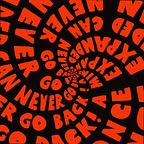Dystopian Utopias: An Interview with Alec Huxley
Alec Huxley’s work feels like a mash-up of classic Wild West and dream-like apocalyptic art — at once haunting and serene. Recently Alec answered some of our burning questions about his journey becoming an artist, what inspires his distinct artistic style, and how humans need art to survive. -Jason Markow/TEKSTartist.
IAC: Where did you grow up? How did that have an impact on creating art?
Alec: I was born in California and now I’m back but between ages five and eighteen we moved around a lot. It was mostly really exciting and I embraced the need to create my own entertainment, learning to live in my head and making things out of nothing. I had a pretty wide range of interests. I remember building a time machine, drawing, writing, and binding up my own Garfield comic book. I always loved making dioramas and what you might call “installations” now but were just crap glued together. I remember trying to make a few movies — a detective movie and a war movie — on one of the early, bulky cam-corders. And I fell in love with photography when I got my first camera at age eight.
Did you always want to be an artist when you grew up?
No, until I was almost done with school I never considered art as a viable career choice. I was always into science, especially life sciences so I entered college as a biology major intending to go to medical school.
Your style is very distinct. I’m fascinated by how you manage to tie in conflicting themes. How would you describe your artistic style in your own words? Is there a particular message you’re trying to express?
Apart from a few specific works there’s generally no distinct message I’m trying to get across. I’ll aim for a certain feeling but I enjoy searching for meaning in my finished works as much as I hope a viewer will. I’ve always been comfortable in darker realms and there’s something compelling to me about setting up a visual scenario of disparate symbols and letting meaning emerge from that on its own.
I’ve been a pretty avid reader and film nut for most of my life so the themes I like to ponder and what probably gets imbedded in my work comes from books and movies. There’s a type of literature called Magical Realism which is usually associated with Latin American authors, notably Gabriel García Márquez (100 Years of Solitude), and I’m beginning to see it has a lot of ties to my own work. At the core is an identifiable setting, grounded in reality but which harbors very unreal elements and happenings.
Several of your pieces have scientific themes and a sense of alternate dimensions. Can you tell us more about your fascination with things like quantum physics, science, and astronomy?
Thinking about those things is the easiest way to draw my mind out of the “reality show” of life. All the petty shit I might get twisted up in can evaporate by going outside at night and staring straight up. Overwhelming oneself with your own insignificance is wonderful medicine. And those disciplines are so integral to our existence I think I appreciate life more when I study them. Also, those sciences were never my focus when I was in school. I’ve still never taken a formal physics class but as an adult I’ve enjoyed cherry picking topics to learn on my own. That’s one thing I learned pretty quickly — it’s much more enjoyable to learn something when you don’t feel you’re being forced to.
A lot of your work is acrylic on canvas. Are there other mediums you like to experiment with in the art realm?
I love photography and film and I’ll do some sculpting occasionally. As far as painting, I’ve enjoyed working on panels lately as opposed to canvas. And something that I should really use more often is charcoal — I’ve really liked that in the past and it definitely mirrors the way I paint.
How would you describe your work in three words?
Dark-ish
Representational
Escapism
Do you think art and creativity are important aspects to the human experience?
I think they’re extremely important. It’s pretty clear humans have been compelled to create since the early days of our evolution. After we made tools to survive we made other tools to decorate our dwellings, clothing, even our survival tools because we were compelled either for the purposes of communication or simply our own aesthetic pleasure. And clearly that compulsion is just as crucial today.
Finish this sentence. A world without art is:
Suppressed.
See more of Alec Huxley’s work on his website, on Instagram, and on Facebook.
If you enjoyed this interview, please hit the ♥ button in the footer so that more people can discover this artist!
